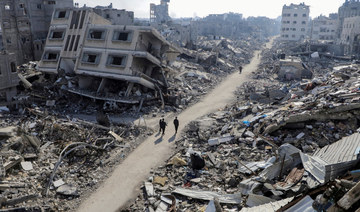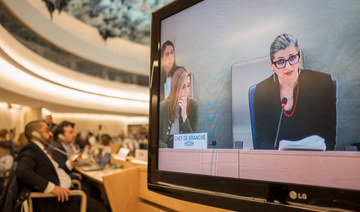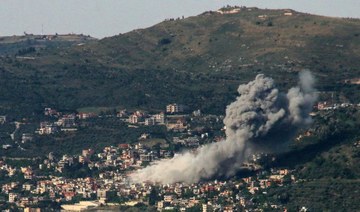DUBAI, United Arab Emirates: The United Arab Emirates, home to the world’s busiest international airport in Dubai, announced early Monday it was suspending all passenger flights and the transit of airline passengers in the country for two weeks to stymie the spread of a new virus.
Dubai’s airport is a vital hub connecting Europe and other Western nations with countries in Asia and Australia. Suspending transit flights there impacts travelers around the world.
Saudi Arabia, meanwhile, announced overnight that an evening curfew would go into effect starting Monday from 7 p.m. to 6 a.m. for 21 days.
The decisions are the latest and most dramatic measures to be announced in what has been a gradual but rapid tightening of daily life across Gulf Arab states, as well as around the world, as government’s struggle to slowdown the rate of infections from the new coronavirus.
More than 331,000 people have been infected worldwide, and more than 14,400 have died. Tens of thousands have also recovered.
There are around 26,800 cases of the virus confirmed in the Middle East, but more than 21,000 of those cases are in Iran and many others are linked to travelers from Iran.
The UAE’s emergency and crisis management body and its Civil Aviation Authority announced in a statement on the state-run WAM news agency that the decision to stop all commercial flights, including even transit flights would take effect in 48 hours.
The aviation authority said cargo and emergency evacuation flights would be exempt from this ban.
Saudi Arabia and at least seven other countries in the Middle East have already suspended all commercial flights to try and stop the spread of the virus. Several countries in the Middle East, including Iraq’s capital, Baghdad, and Kuwait, have also already imposed evening curfews.
The Saudi king on Sunday issued an order imposing a curfew across Saudi Arabia from Monday evening to control the spread of the COVID-19 disease.
King Salman’s order followed an announcement by the Saudi Health Ministry of 119 new coronavirus cases on Sunday, raising the total number in the Kingdom to 511.
The UAE’s Ministry of Interior additionally announced overnight that people should only leave their homes in their personal cars for work or necessary reasons while further announcement would be made regarding rules for taxis and public transport, which many foreign laborers and workers across the country rely on. The statement warned that violators could face fines or imprisonment.
Countries across the Gulf have already closed schools, gyms, parks, beaches and mosques to the public, including Islam’s holiest sites in Makkah and Madinah.






















